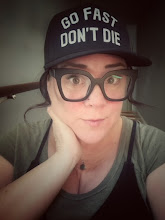Today began quietly. Like any other day, really, until I went to wake Lucy up and she rolled over and said to me, “I don’t think I can do this.” It progressively got worse, highlighted with my carrying her upstairs to brush her teeth (she refused) and holding her while she bawled and shook, saying over and over again that she “just didn’t feel well and couldn’t possibly go to school.” This is how many of our days have started lately, and it’s hard for me to write about it because it’s so raw right now, but I feel like I have to. I’ve written before about Lucy and her anxiety, but somehow at six years old, she’s found new and different things that trigger it, and we are yet again searching for answers to this situation.
When she finally got out the door this morning (and before the two subsequent phone calls from her teacher and the nurse, each saying she was fine but needed to talk to me…and each supporting Lucy to the best of their abilities) I sat and cried. I cried because it’s the week before Christmas and my six-year-old daughter is miserable – not just miserable but just plain sad. I cried because I somehow feel responsible for her emotions, even though I know deep down that I have very little control there. I cried because I knew I’d have to finally break down and call our pediatrician and try to explain to him what in the world was going on. Has been going on. And finally, I cried because my sweet baby girl is six. Six years old. Way too young to have these feelings, right?
I’m not going to pretend that I know anything about depression or anxiety in the clinical sense of those terms. I only know that I was a very anxious child. I pushed so many of those memories back into the recesses of my brain – back where I’d never have to pull them out again…until this week. I was a worrier, I worried myself into barfing, I was homesick even with my parents right down the street. I put my parents through hell, and now I guess I’m getting paid back. I would, however, like to state for the record that if payback is a bitch, I get it and I’d like this to stop. I understand but this is enough.
The thing is, I’m trying to toe the line between giving Lucy the acknowledgement that she needs to know her feelings are valid and real and telling her she’s being silly. The one memory I have of being that scared, anxious kid was feeling like I was at fault for feeling those things, and when I couldn’t control them, how could I possibly be to blame for them? What a lonely thing for a little girl to feel. I remember that clearly, and I’m trying to show Lucy that her feelings matter while also trying to figure out how to get her beyond them. We met with our pediatrician, are meeting with the school counselor and are also meeting with a behavioral psychiatrist as soon as they can get her in.
Why am I telling this story? Simply because I want people to know that it’s not unheard of for young kids to have these issues – they are real and need to be taken seriously. I realize that one day Lucy might look back and be mortified that her mother gave away her secrets – sold her out for a blog post – but instead I hope she knows it’s just because I love her and have to write in order to sort out my own feelings about this. Oh, sweet, sweet Lucy B…one day I hope we can look back and laugh at this day.

